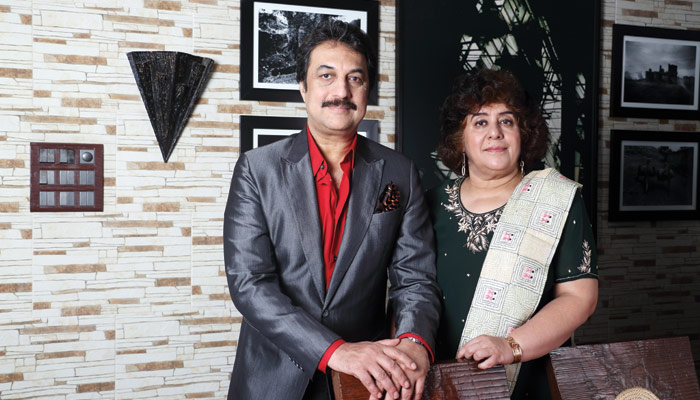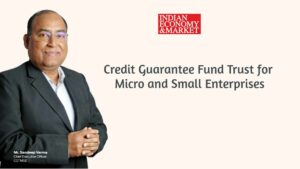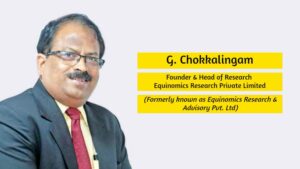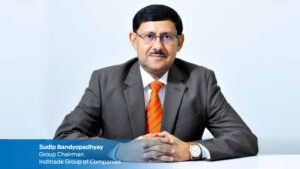Without any doubt this is The First Family of Indian Stock Market.
The first highly qualified, much envied and most admired Jodi that entered with big dreams when they saw a big potential and untapped market for ‘equity research’ at a time when it was an unheard word in India.Shankar Sharma and Devina Mehra, the two young ex-Citibankers, and first generation entrepreneurs left their cushy jobs to set up First Global in 1988. The duo were keen to operate at a global scale – hence the name First Global. The First Global, a baby of PV Narasimha Rao’s liberalization, is an International securities house, servicing primarily an institutional client base, across the US, UK, Continental Europe and India.
True to its name, the First Global has many firsts to its credit –
• the first professionally run broking firm with highly educated individuals led by Devina Mehra, herself an IIM Ahmedabad Gold Medalist
• the first to venture in the field of preparing research reports of companies based outside of India
• the first Asian company to be a member of the London Stock Exchange
Their entrepreneurial journey provides enough material for a blockbuster thriller with its many highs and lows. It has always been either extraordinary success or an extraordinary failure. The word ‘normal’ doesn’t exist for them.In a freewheeling conversation at their beautiful sea-facing apartment at Walkeshwar, Mumbai, the dream destination of every young Indian stock market investor, the couple, the two influential voices in the stock market whom everyone sits ups and pays attention to, share with Krishna Kumar Mishra their take on the current market environment and investing theme.
“To get super normal returns you have to become a contrarian.”
Again we have the same government, the same policies; what do you think could be next trigger?
Devina Mehra (DM): In terms of election results the whole impact on the market is really talked about too much without really it having that much of an impact when it actually happens. And as you said that anyway this time there is no change, but even if there had been a change we don’t think elections have any major impact. The main thing that would drive the market or as you asked in terms of triggers going forward it has to be either some change in the economy or change in the performance of the companies. That is the underline besides global factors.
Is there any possibility of a bear market in very recent future, maybe six months to one year?
Shankar Sharma (SS): Yes. Bear market is always possible and it happens only when we don’t believe it can happen. So if oil prices go to $80-90 which it can, I don’t know about the rest of the world, but India will definitely have a bear market. And in any case, if you look at the situation in India on a narrow basis, in terms of corporate earnings the numbers are not very good. So irrespective of whatever the euphoria we might have seen around the election it had not been as much as what people anticipated. Hardly 2-3% move; which is again telling you that market is thinking little beyond and seeing not very rosy picture. So yes, bear market can happen. Not saying it will happen but to answer your question it can happen.
Why investors as well as regulators hate bear markets?
SS: Because in general the whole purpose of regulators in India and elsewhere is to bring more and more investors into the market and in particular small investors. So small investors come and buy a few shares. If the shares decline in value in bear market then he will not come back. So the whole policy framework from a regulatory angle is always that if a bull market is created out of very poor fundamentals, as it can happen and we have seen that, it’s still OK. But bear markets happen only because fundamentals are bad. You cannot make it happen. But if you project a very different heavenly world which is not backed by any fundamental the regulators are happy. Bear markets show you bare naked reality which no regulator likes to see. That’s the way it is. Although in reality bear markets bring out all the problems which have been covered by the bull market. We’ve seen in the last one year lot of corporate groups and banks have suddenly become insolvent while they were all good till even one year back. In bear market there is no room to hide. All the collateral you have given will decline in value. You cannot have more collateral, you don’t have actual cash flow to pay the loan because you are betting on high share price and continuing share price. So bear market is a very good disinfectant. It’s like Dettol, that kills germs but the problem is we don’t want to kill the germs.
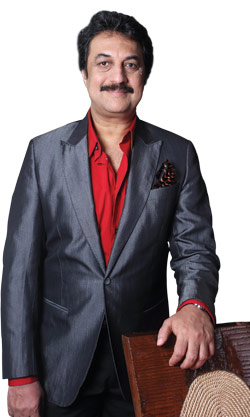
Recently, it has been suggested that the relationship between yield curve inversion and recession is obsolete in the US market. What is your take on that?
SS: I agree that this relationship needs to be questioned. Usually it has been said that it is a forecast of recession but clearly that does not appear to be happening in the US. Again in every piece of data or correlation there are going to be aberration. Correlation does not mean 100% times X will result in Y or X and Y will travel together. It is not like that. You can only talk probabilities. Secondly, there are not enough data. How many recessions in 100 years the US had? Hardly 5 -7.
DM: And that also you have to see at what level of interest rates.
SS: Yield inversion at 10-11% is different than at 2-3%. It requires a lot deeper thinking but my view is that given the very few data points it is not enough for you to make a decision. If there were 200 data points then you can make a reasonable decision. You got five data points only. So I think it is just a false correlation people have derived because it has happened sometimes. Clearly I don’t think it portends a recession in the US. If something has happened just 4-5 times then we can’t come to a judgment that every time it will happen.
The world economy has seen one of the longest streaks of recovery. How long you feel it can continue, after the recent trade war between two largest economies.
DM: We don’t see a big slowdown immediately but there is some worry in the US-China trade war. Especially now they are going all out. For example, US is trying to shut down Huawei effectively. The administration is even making them unable to access the US capital markets. Even at the venture capital stage if the fund has any Chinese investor the companies are basically not allowed to take the money. In effect, China is being discriminated. US is becoming more of a closed economy. You would not have imagined that happening to US few decades back. When Japan was doing well they actually went and bought iconic US companies. Now it is a very different US. Where it ends is slightly difficult to say because this is not purely about economy. It is about two countries and their geopolitical ambitions. I would say right now there does not appear to be a big threat of immediate recession but you have to watch the situation how it unfolds.
How do you assess India Inc performance for FY19?
DM: Not very good. In fact, if you go back last few quarters, every quarter analysts were saying that next quarter the turnaround is coming or the next year the growth will be good. But now we have gone through multiple quarters, in fact multiple years where growth has not been good at all. In many cases even we see declines. If you look at the aggregate markets that also show in the performance that regardless to what happens to the Index it was only a few numbers of stocks that were driving it. And in fact now many of the fundamentals are changing for the worst. Global economy was doing well which is slowing a bit now. India had consumption driven growth which in turn was driven a lot by the credit growth. Due to problems being faced by banks and NBFCs many of those credit lines are getting cut to the consumers which is now showing up in the consumption not just in the automobiles and other sectors or large chunky items but even at the FMCG level. Now what this government and its 2.0 avatar does one has to see. Anyway, the economy has been running only on two legs – government spending to a point and consumption.

What is your take on the current valuation of Indian market vis-a-vis the rest of the emerging markets?
SS: Right now valuations are very expensive as they are not really backed by very good fundamentals. So I think Sensex or Nifty may be 25x-27x which is really at the highest end. That kind of PE multiples can be justified only if you are looking at the 20-30% kind of growth. But we don’t see that kind of growth coming through. So the multiple remains there. It’s not going to shrink or not shrink by much, which only tells you that market remains expensive. Not just expensive but also very narrow because 39000 Sensex has been achieved with just 7–8 stocks at the highest. So you have very poor earnings growth and high valuation – the poor earnings growth at PE of 8x is OK because it is already discounted. But poor earnings growth with PE of 25-27x combined with narrow market situation – these three factors are very disturbing and discomforting. So compared to the rest of the world, India is definitely far more expensive.
People compare this PE multiple in India with US where interest rates are one third of India. Normally interest rates are the biggest factor in determining the PE ratio. Lower the interest rate higher the PE ratio. So if S&P500 is trading in the mid 20s it is not the same as India trading in the mid 20s.On the same basis India should be trading at half if not lower than that. If you look at our peer group Russia or Brazil etc they are virtually half the multiple of India.
One of the reasons why India remains always an expensive market is because India always has a good story for the future. Sometimes it will be infrastructure boom, or single party government, demographic dividend, and sometimes it will be one billion middle class. So there are always good stories to keep our valuation high. When one story starts to fade we invent a new one. PE multiple is also a factor of hope. Where you are more optimistic you pay more for the share. So the world is more optimistic towards India because India keeps giving them reasons. Now the same government with 20 more seats is reason to give high multiple.
How do you rate the NCLT and IBC?
SS: IBC part was framed by the UPA2 which got passed when the previous government came in. The objective of NCLT was to speedup the whole process of liquidation of companies, or acquisition of bankrupt companies. The objective is good, implementation has been reasonably good, but it has been only to the extent of the few big cases. For majority of the cases that does not come in the papers there is no resolution, meaning banks are more than willing to send them to liquidation rather than seek whatever money they are getting. You might have given `5000 crore and getting maybe just `500 crore, atleast you are getting something. After liquidation you may not get even that much and, if, then you’ll get it in over 4-10 years period. Bankers should be realistic and say we have already lost money and now let us at least have a graceful exit here.
I think bankers are scared of taking decisions and preferring to take safer option for themselves personally as in the last 4-5 years bankers have been put under a lot of pressure. In hindsight you can question any decision. You give a loan today no matter what security you have, three years down the line the security might become worthless; Company might become worthless; project might become worthless or global glut happens. At that point if you start questioning like, say there was so much capacity in steel already so why did you give? But the fact is many bankers have given loan to that entity. Financial decision is not based on only numbers. On the same numbers two people can have different conclusions but that does not mean that there is something corrupt in their thinking. Because of whole hangover of what happened in IDBI Bank and other banks they just say I’m 5 years from retirement. Let us just put it into liquidation and go home. So I think act is good, intent is good, but there is a fear psychosis which is preventing revival of the companies.
What can be done?
SS: I think the government needs to tell banks in very clear terms that whatever happens in the IBC process that will not be questioned. There are times when you need to give immunity. If you recall the US crisis when Hang Paulson, who was the treasury secretary, came up with a TARP plan (Trouble Asset Release Programme). In that plan the key thing was that ‘I will be made immune from any enquiries and prosecution in the future.’ If there is a crisis I need to make a quick decision. In quick decision some mistakes can happen. In a cool environment many things can be considered. Therefore I need that protection and immunity. In IBC the patient is already dead or most of it is dead. At that situation I am trying to save and might have taken a very low price for saving. My decision, in hindsight five years time may look very bad but you have to see it in the light of that situation. So the government should give a clear immunity to bankers in the IBC process.
DM: In fact there is a situation where banks themselves access the breakup value of a company and send it for liquidation. When a bidder builds more than that even then they feel that somebody might say why only 20% why not 40%. So that’s really total paralysis on decision front.
What would you identify as the key opportunities and challenges facing India?
DM: Well, the sad part is India actually missed out on lot of opportunities which the global economy had given it for the last few years. Lots of other much smaller countries have done very well on export front from Bangladesh to Vietnam. There the companies are actually running out of capacity and hence their per capita income has gone up. Bangladesh, for instance, will overtake us on per capita income in a year’s time. So while this boom was going on our exports have actually been hitting sort of multi year’s low. Our trade deficit, with China for instance, has been going totally haywire. India has not been able to take advantage of opportunities in manufacturing and exports. That has been a big miss. Now a lot of services from telecom to banking have been suffering from other reasons. One hopes that we do better going forward.
At this stage your conviction in small caps?
SS: In small caps your conviction is always going to be tested in bear market because they tend to not only just fall in the value but they fall in volume also. In large-cap even at lower prices there is adequate volume. You can say I have lost 30–40% but at least let me sell and go and you will get volumes. But in small-caps despite prices are down by 30–40% still you do not have buyers. The shares remain an unwelcome guest in your home and you have to just bear it, ride out that period. So my view has been bullish, continue to be bullish but in small caps there is nothing called overall small caps category. There are many small sectors or even single companies that don’t belong to any particular large industry group. Those don’t have to necessarily follow the same pattern as the broad market because they have their own specific fundamentals and they can work very differently from the rest of the market. Our approach is getting those kinds of companies rather than just bet on all small-caps. We have to pick a single stock and that might have fundamental unique to that stock irrespective of where the market goes, it will do well. That is the general principle of the way we invest in small caps.
Is there any particular sector you like in this space like earlier it was chemicals?
DM: Again chemicals in it have many sub categories. So you have to look at category by category and which segment each company operates in. But as a whole chemicals have done well because there have been global changes which have brought more business into India. Now of course some of the companies are reasonably expensive. As Shankar was saying more than even categories or sectors at this stage we like to see at companies in particular. Like you can look at infrastructure which has not done well but there have been companies which we have liked where there is a turnaround story. It’s still a bottom up market because on the macros we still don’t see things changing. But on the company level lot of things can happen. So that’s where we want to concentrate as of now.
SS: Chemicals we continue to be very bullish. There are many companies in this space – small product line but profitable. We understand the economics so we stick to that. In other sectors also some odd opportunities here and there can happen. Like in steel and infra we find some good opportunities. But in markets you don’t need to do too much. You have to do very little things. It is not like Bollywood where I’ve to make a movie every year. If I make a movie once in 5 years then also it is good enough to make a good living.
Do you expect a rebound in automobile sector?
SS: I think it is a difficult situation for the auto sector right now as the fall is very steep. You might rebound from the low of the decline in the growth rate but actually it is de-growth. Now for it to climb back to previous level it is very difficult.
DM: In autos there are medium term risk areas like environmental norms. If you go forward maybe 3-5 years you will have electric vehicles with totally different life span, and much lower level of components. There is also more secular change in automobiles which has come after decades. Right now it is not doing well but in normal course you might see in a year or two it will revive. But now the horizon has become hazy in terms of what could be the situation then. But here again India has not moved forward whereas China has moved very fast on electric vehicles and its components. It is not an important reason for the decline we have seen in the last few months but I am saying that this puts a cloud whether the revival can happen even a year later. That is really the concern.
Do you expect a rebound in rural consumer demand?
DM: I don’t know because right now there is no visibility. What will change rural consumption or demand is a big question. You had actually a situation where HUL was talking of recession. Some other consumer companies also talk of tough conditions in the rural market. NBFC problem also must be affecting the consumers. Now if any initiative is taken that pumps money into the rural economy we will have to wait and see.
Given an opportunity to present budget, what will be your priority – investment, consumption or export?
SS: You have to proceed on all the three fronts. Land acquisition in India is a very big problem. I, as the Finance Minister, will definitely try to get law passed that allows very easy acquisition of land. This kind of mandate gives me the ability to become like China where human life does not matter. What matters is development. The government should use this opportunity to do much more in terms of hard brutal anti-people reforms. China has grown because of anti-people reform. We got the opportunity to shut out lots of industries, and plants which are making India uncompetitive. Why should there be 6 telecom companies? You should have only a handful of large banks. If you look at US and UK they have prospered because of lowering tax rates. But maybe those companies are more honest. In India companies are not that honest. Fiscal deficit I will certainly take to 4.5-5%, at least one and half percent more. When Pronab Mukherjee exceeded the fiscal deficit target by 0.2% market fell but when the next FM kept exceeding it the market kept rising. What was the difference? Difference was how you communicate the reason. In first case they felt sorry but in the second case they said we are happy we missed the target because we want to have growth. So I will keep 5% fiscal deficit and manage the inflation, after all it’s just data only.
What will be the impact of recent escalation of tension between US and Iran on crude oil?
SS: In all kinds of geopolitical risks in that region you are usually bullish for oil. So I would not be surprised if oil gains $10-15 over the next few months time. Oil always affects our market. There are two effects – first is prices rise across the board. It has been happening since last few years but we haven’t seen any narebazi. It was all managed. Newspaper headlines are restricted based on which people make their view. Second, current account deficit will certainly be affected and if it is affected then currency is also affected. So for India, oil price rise is not good.
DM: The margins of companies also get affected because all your associated cost gets affected. Again it is difficult to pass everything on the consumer.
How come you are always a contrarian investor?
SS: Right from childhood I always wanted to do something different. Once I got suspended due to this and it was the first case in the school. I feel some downside is natural to that attitude but that has its own thrill. The questioning which I was talking about comes out of that attitude. Everything you question. That is what contrarian is. Questioning a thinking. Like as you said about recession and inverted yield curve – you can ask questions what is the reason behind this. Most people will assume it is like this. My idea is what are the facts and what is the data behind this. If you keep doing that sometimes you get to know what people have been thinking has no base. So if you keep questioning sometimes you will get very good gems. Working on what is known and being accepted you get only a normal return. To get super normal returns you have to become a contrarian. This is no easy way because you have to buy something that everybody hates or sell something that everybody loves. And that you can do only when you critically analyse it. You are always swimming against the tide. But thinking against mass hysteria is not an easy job. You will question your own belief system.
You said now you don’t trade;why so?
SS: Trading is full time job when you trade globally. Early morning at 8 you are in front of a screen. You get just an hour when US market has not started yet and UK market is having lunch time. So you have just one hour of free time. When you are younger you can manage but not at this age and stage. You don’t really need that. Trading is basically when you don’t have money. What you need is just margin money. Everybody starts basically doing trading but once you got capital then you should become an investor.
You are known to buy trash companies. What you look before investing in them?
SS: Those are not literally trash. Market considers them trash but generally you get something solid if you see them correctly. We bought Twitter because we thought you can’t make another Twitter. It is beyond boundaries, more powerful than traditional media. Such a valuable platform was trading at $12. Now it is $38 in two and half years. So you will find such opportunities. But like politics and cinema market is another mass voting mechanism. Whenever there is a mass voting it does not mean it is necessarily right. Our job is to find out if voting is wrong.
Do you think IPO market will become very active?
SS: I don’t believe that IPOs necessarily need a very strong bull market to succeed. If the numbers and fundamentals are good it will find takers. What you are saying is that good bad ugly everything starts to sell. For that to happen the secondary market should have at least 6–12 months a very strong bull market not a moderate bull market. It has to go up to 20–30%. First, people like to get enthusiasm in secondary market and towards the peak of secondary market the primary market revives and then everybody loses money. That is the nature of this world.
Let our readers know Shankar Sharma and Devina Mehra beyond markets. Journey from Dhanbad and Lucknow to Mumbai.
Devina Mehra beyond markets. Journey from Dhanbad and Lucknow to Mumbai.
SS: Dhanbad had no equity culture. It was just sheer luck that one gentleman introduced me to this field and again it was beginner’s luck. My very first investment gave good return. Bad experiences also happened. When Rajiv Gandhi became PM there was a very good bull market. I was hardly 21 years of age and I made a lot of mistakes but I got to know what it is all about. I do believe that many things happen because of your destiny but it also comes out of your attitude. If your basic attitude is of questioning stock market is the best place. You can call it early education or guidance I always had questions. Why it happens? Why it is not possible the other way? I always had this attitude and it is very useful to the market because you have to critically see every company and as an analyst it is your right and religion to question and no one will call you anti-national.
Mumbai is a city of gold and it attracts you. In childhood I never liked those films which had rural background. I liked films where hero, with his bag and holdall comes to Mumbai, lands at VT station. Earlier most of the pictures had that scene. Then a car chase scene at Marine Drive always attracted me. I still remember when I used to think one day I will drive my car very fast at Marine Drive while sitting in a Tonga in Dhanbad. Sometimes your childhood dreams come true.
DM: I grew up in Lucknow which is not at all a business city. When I joined IIM Ahmedabad I did not know about debt and equity because I had not even done economics or commerce. Two years at Ahmedabad was a great learning experience. For me the big thrill in life then and even now is learning as many new things as possible. Then I joined City Bank where I was in investment banking division and it was my first exposure to capital market. Later I was shifted to Credit & Risk Assessment side where I was studying companies. I went out of my way to learn. I used to do extra plant visit when many were reluctant to go at remote locations. Then in 1993 Dr Manmohan Singh presented that budget which opened the market to FIIs and I thought now is the time when professional research would have value. Till then broking here was very much old school.
I quit City Bank and embarked on my entrepreneurial journey when companies had never heard of equity research. You would call up companies and half of them will say why should I meet you? At times I would just go to the factory and say let me meet whosoever is available. Many times you get to know much more that way. As FIIs came in we could cater to that market because they were interested in a more professional research. We read literally 1000 books because the time we did our MBAs security research as such didn’t exist. There was not even a proper course or a module on that. Soon we decided to go beyond India. At that time people said that sitting here you cannot research a US company. Clients also told us that if you want to go out then you go to another emerging market. Our view was that if we have to go out then we’ll go to the biggest market. Again US clients told us that if you want to cover here you cover small companies which no one is covering. Again we had made a differing decision that if we are going there we have to cover the Wall Mart, IBM and later on Amazon and all of that. That was another interesting stage in the journey. You were looking at global companies, at very different dynamics and you were getting appreciated for that. We made a mark there pretty early that we were covered by Business Week and Wall Street Journal. Our belief won – Learning is the key.
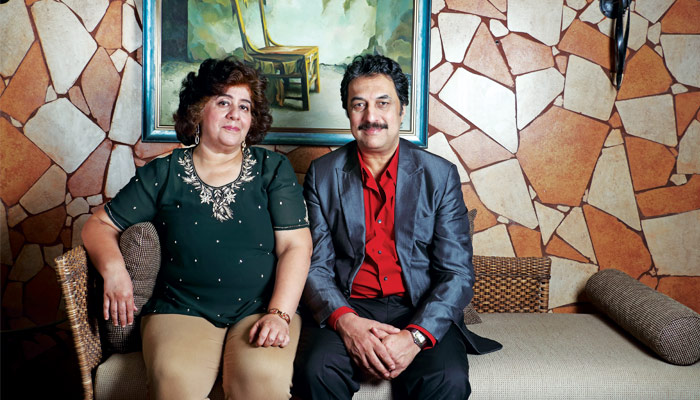
RapidFire
Skill counts in the markets or is it luck all the way?
SS: Both
DM: You require both. You can’t rely only on luck for longer period of time. You need skill if you want to sustain that luck.
Any individual you turn into for advice?
SS: I don’t have any investment guru. But you can have guru from anywhere – school teacher, MBA professor, Cricket coach, colleague, first boss. You have to be a constant student throughout your life.
DM: You require both. You can’t rely only on luck for longer period of time. You need skill if you want to sustain that luck.
Your favorite business family in India. 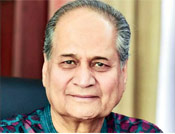
SS: The Bajaj family. I don’t think there is any other group with that record of success. In both of their businesses there is no protection. In a pure free market business no other group has attained their kind of success.
DM: As a family I would agree with him. Bajaj have remained focused and they speak what they want to say. For companies I admire what TCS has done in last 10 years. It has totally changed its trajectory and still managed it very well.
Any fund manager you admire? 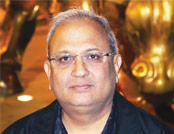
SS: There are many, but I would name just one –
Samir Arora. He is also a good friend.
DM: Picking one is very difficult.
Your next best asset class after equities?
(in unison) International Bonds. Many times fixed income is better than equities. You always have to access which is better asset class at any point in time.
When you exit from an investment?
SS: You get enough indications like earnings have flattened out, charts are looking weak.
DM: You get enough clues. It is not difficult.
Current reading list and all time favourites?
SS: I’m reading a book on Startups by Ben Horowitz. I like to read such books rather than pure finance related. There are two really memorable books – Chrysler’s ex-chairman Lee Iacocca’s Autobiography and Richard Bronson’s biography Losing My Virginity.
DM: My reading list is always eclectic. Right now I’m reading a lot on marketing. All time favourites are actually two books which talk about the fallacy in our thinking. One is Thinking Fast & Slow by Daniel Kahneman and the other is The Invisible Gorilla by Christopher Chabris & Daniel Simons.
Regret in your investing career?
SS: There are thousands. One did not buy IT in 1996.
DM: There will always be regrets.
Any wish to retire, and when?
SS: In business you never retire. You just continue.
DM: I wish to carry on till the nineties like Captain CP Krishnan Nair of Leela.



